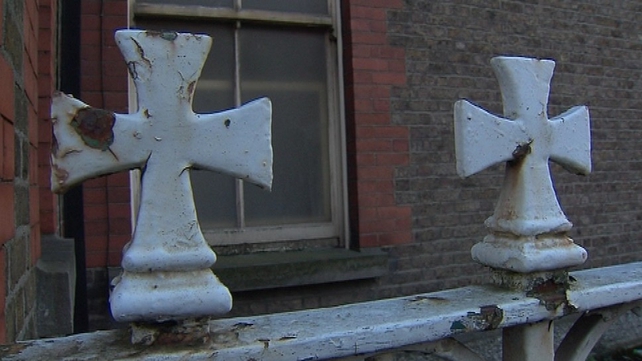Tuam Scandal
One year after Tuam scandal, survivors blast lack of progress
One year after the Tuam babies story made global headlines, survivors say they are “deeply disappointed” by the lack of progress being made by the inquiry.
For decades after it closed, the Tuam, County Galway Mother and Baby Home lived on in the local consciousness, a gloomy and folkloric place that had been left alone and not built over.
Instead a small plaque had been erected in the remaining plot of land that read: “In loving memory of those buried here, rest in peace.”
Just as they had in its decades of operation, most locals were content to look the other way.
But one woman found she couldn't. Catherine Corless, who had grown up in Tuam whilst the Home was still in operation, vividly remembered how stigmatized the Home Babies in her own class had been by both teachers and pupils.

“Those children were brought up to believe they weren’t worthwhile, that they didn’t have the same rights as everybody else,” Corless told RTE's "Where In The World" in April.
The unease this awareness created – compounded by the fact that her own mother had grown up in a similar institution – finally compelled her to explore the baleful history of the Tuam Mother and Baby Home with a level of engagement that contrasted sharply with the nation’s long indifference.
What she discovered shocked the entire world. Chronic infant mortality rates and – most shocking of all – the death certificates of 798 forgotten children whose tragically short lives had been erased by unmarked and unrecorded graves.
That fact the that it took the efforts of an impassioned and diligent local historian – rather than a government investigation or a fully fledged academic inquiry – to bring this scandal to light is one of the things that makes it especially distinctive and compelling. Unconstrained by political considerations, Corless was free to pursue her investigation wherever it led her.
What eventually emerged at Tuam held a mirror up to every other Mother and Baby Home in the country and to the pervasive and controlling shame that help foster their notorious cruelty.
From 1922 onward, records show that unsanctioned motherhood was effectively outlawed by the Irish State. The contagion also spread to their offspring, who were variously treated as unfortunate,unwelcome and undeserving of the care and compassion afforded to the children of married couples.
It remains to be seen how much of an appetite the Irish people or their political leaders really have for the whole truth to emerge.
The Commission of Investigation into Mother and Baby Homes (and Certain Related Matters) was announced in February of this year by the Irish Minister for Children and Youth Affairs, Dr James Reilly, but it is still getting under way. Despite a €21 million ($23m) operating budget, it does not yet have a dedicated website.
The time frame the Commission announced for the completion of its work is three years. It could be 2018 before we read a line of their report.
Critics, fearing that this heralds a whitewash, demand to know just how limited the Certain Related Matters subheading will turn out to be.
Denis Vincent Twomey, an Irish Catholic priest and a Professor Emeritus of Moral Theology, has also expressed his own unease about the Commission of Investigation, but in his case because the appointment of Judge Yvonne Murphy as chairperson raises the expectation of criminal findings and “may have the undesired effect of leading many people to think the investigation will not be all that different from those that went before” into child abuse and neglect by church authorities.
Twomey has also lamented what he calls the sensationalistic and inaccurate early reporting of theTuam Mother and Babies Home story, although the death certificates of the children – and their unmarked graves – are both a matter of public record and observable fact.
What is certain is that the legacy and scale of the crisis is much larger than Tuam itself – and that for many mothers and babies who were sent to these institutions the crisis has not ended.
In May, Terri Harrison from the “Mother to Mother Dublin” group called for greater transparency in the investigations into the homes.
“As life givers in Ireland, we were cast aside, denied our basic human rights. Our loss hidden, our truth never told, our lives lived beneath a veil of deceit.
“No Mother has been asked to partake in the Commission of Inquiry to assist, or to support them in unveiling the very essence of an unspoken chapter of Irish history.
“It is only when we all acknowledge our wrongs, our misgivings, can we truly face each other...”
It is still an open question how much will be acknowledged, or when.
Read the full article »




 OPEN GALLERY
OPEN GALLERY 